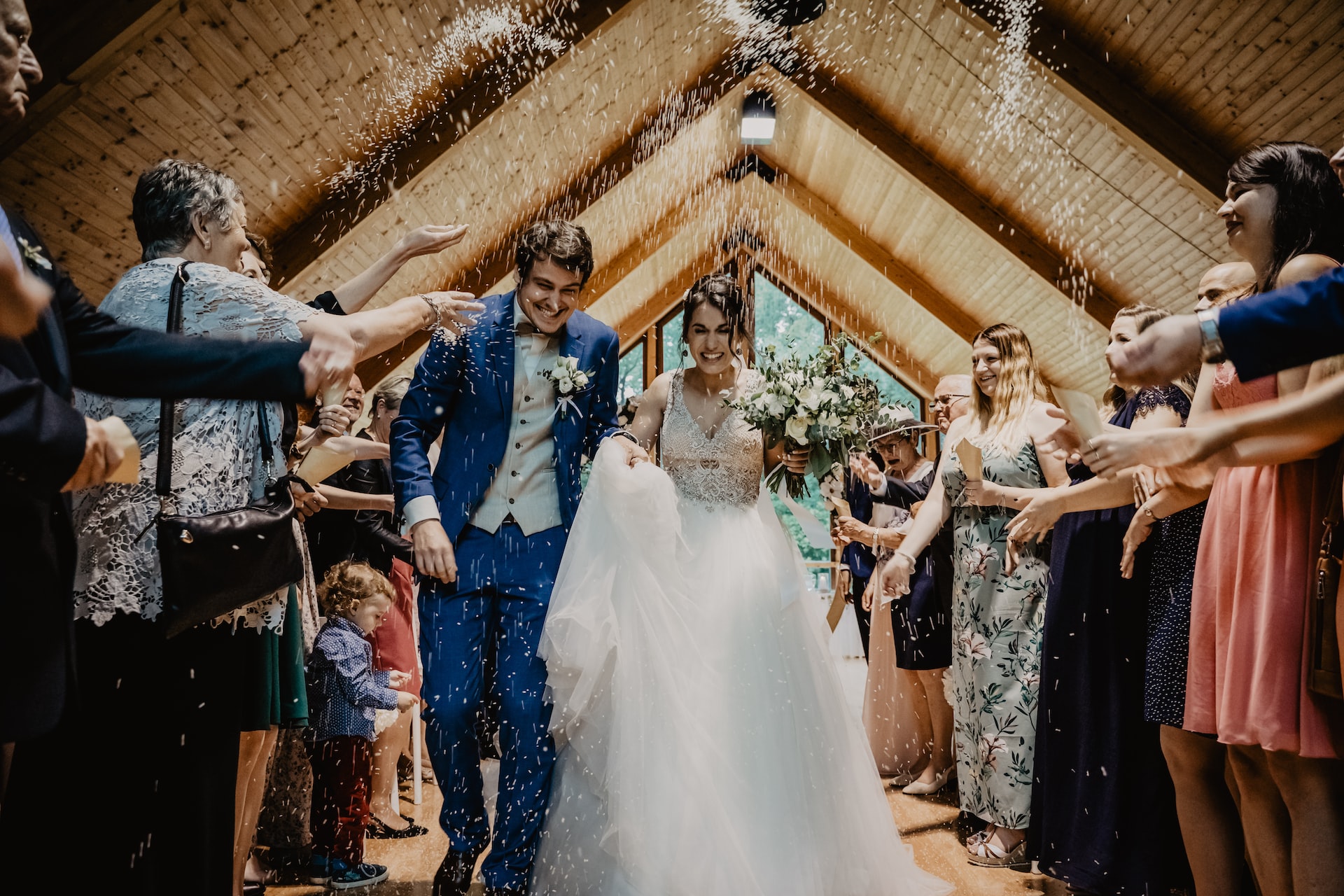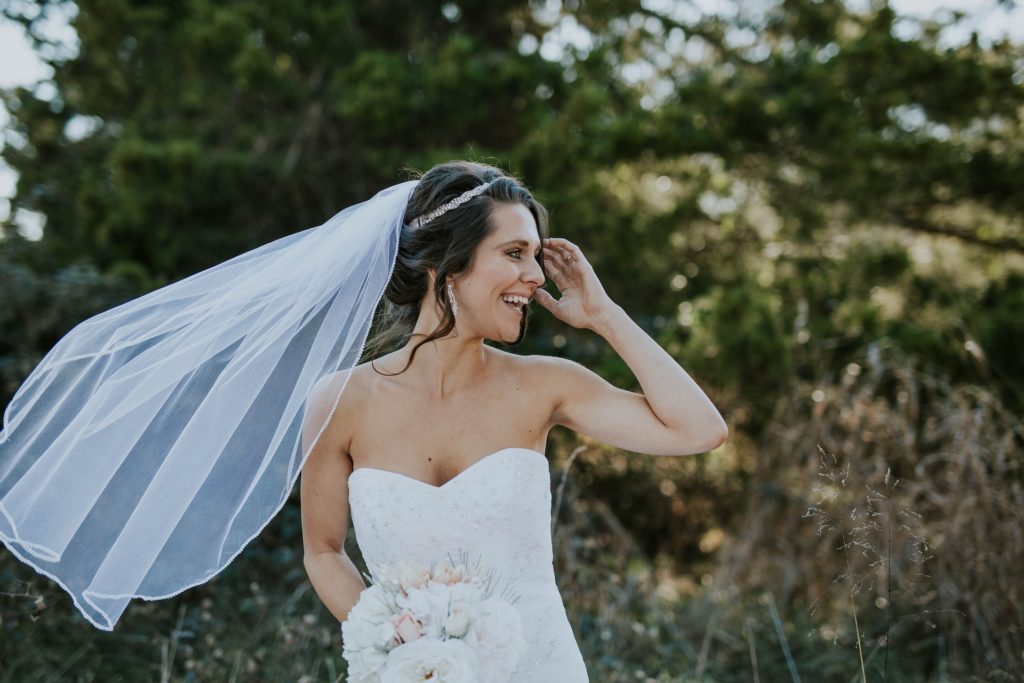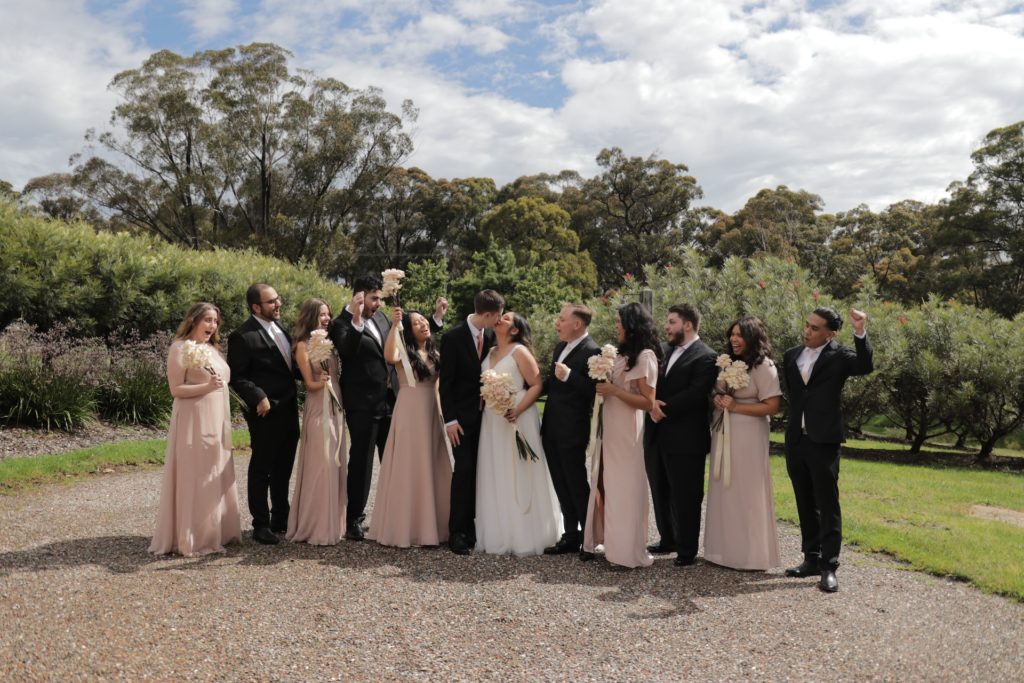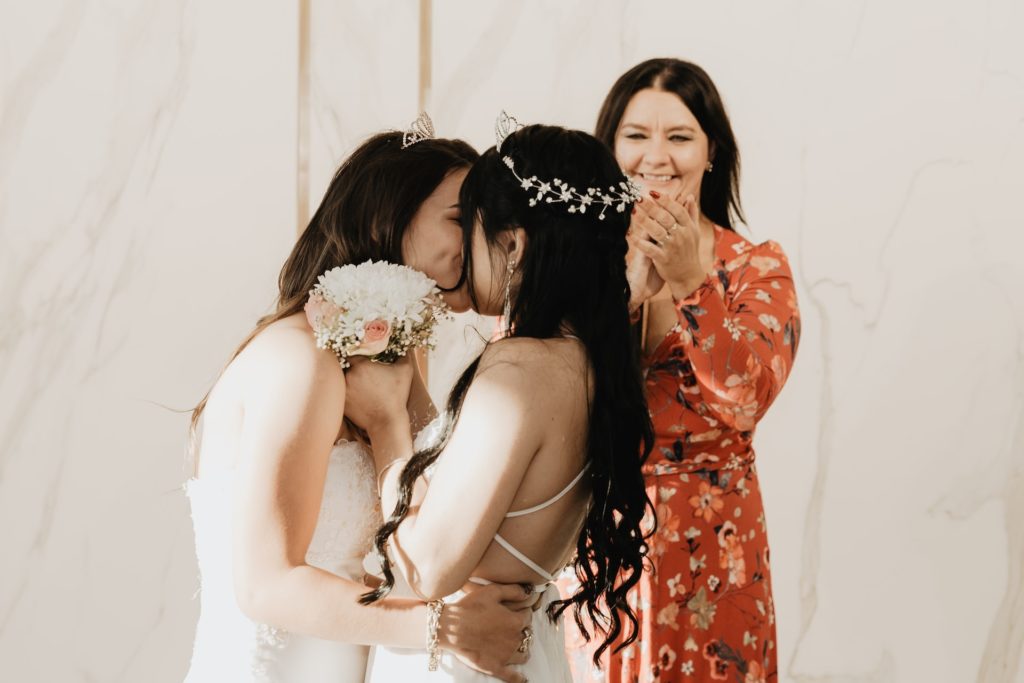Weddings • 12/14/2022
Who Pays for the Wedding: The Complete Guide

Revivalist is a reader-supported endeavor and our posts may contain affiliate links. When you buy through links on our site, we may earn an affiliate commission.
Who pays for the wedding? This is one of the biggest and often most awkward questions couples have when planning their wedding. There are some traditions about who pays for what. These traditions are more relaxed today, though, so there’s a couple different approaches that the couple and their parents can take.
Who Pays for the Wedding Traditionally?
In traditional Western weddings, the bride’s family pays for a large majority of wedding expenses. However, in recent years, things have become more flexible. So, couples can take this with a grain of salt. That said, this traditional breakdown is usually how family members will expect the wedding to be paid for.
What the Bride and Bride’s Family Usually Pays For
Traditionally, the bride’s family pays for most of the wedding expenses, particularly day-of items. This includes things like the venue, the bride’s gown, the decor, the reception, the DJ and other musicians, catering and the wedding cake, the photographer or videographer, gifts or favors for guests, and any cards and invitations.

Additionally, the bride or her family will usually pay for the wedding planner if the couple decides to hire one. The bride should also budget for wedding day gifts for her parents, the bridesmaids, and the groom. It’s a nice gesture for the bride to pay for hair and makeup for herself and the bridesmaids, as well.
What the Groom and Groom’s Family Usually Pays For
The groom and his family often pay for the rehearsal dinner as well as the alcohol at the reception. The groom is also expected to pay for the rings, the wedding license, the officiant’s services, some of the flowers (like the bride’s bouquet), the wedding night hotel room, and of course his own suit and attire.

The groom’s family sometimes pays for the honeymoon, but it is also perfectly normal for the couple to pay for this themselves. The groom should also set aside some money for gifts for his parents and the groomsmen as well as a special wedding day gift for the bride.
Expenses for Other People in the Wedding
In all kinds of weddings – traditional, modern, heterosexual, same-sex – there are usually some expenses that the couple and their families do not cover.
For example, the bridesmaids usually pay for their own dresses. It is the bride’s responsibility to be considerate of how much her bridesmaids can afford to spend on their dresses. It can be a really fun wedding activity for the bride and her bridesmaids to get together to pick out dresses that have the right look and the right price.
The same goes for the groomsmen. Renting a tux and purchasing any other clothing for the wedding, like dress shoes, is usually the responsibility of each individual groomsman.

As a general rule, any parties thrown for the wedding or couple are the responsibility of whoever is hosting the party. So, if the maid of honor throws the bride her bachelorette party, it is her job to pay for it. Although, it is a nice gesture for the other bridesmaids to help out. The same goes for bachelor parties and the bridal shower.
Hotels are always the responsibility of all the individual guests, including the bridesmaids and groomsmen. If one couple’s family does offer to generously pay for hotel rooms, such as for the bride and groom or the bridesmaids and groomsmen, that’s fine, but not expected. The couple can usually have a block of rooms reserved for their guests in the hotel, but the guests are all expected to pay for their own room.
Same-Sex Weddings
Wedding planning can be a bit confusing at first for same-sex couples. Deciding who should pay for what is much more flexible for LGBTQ+ weddings, though. It really comes down to a specific couple’s situation. For instance, it’s fairly common for LGBTQ+ couples to pay for the wedding themselves.

If family is helping out, expenses can be divided up however everyone’s loved ones feel comfortable. Maybe one family is a bit wealthier than the other and offers to cover more wedding costs. There may also be parts of the wedding that certain family members are simply excited about contributing to, such as helping to pay for the venue or attire.
So, who pays for the wedding for same-sex couples is fairly casual and up to whatever works best for the couple. One great strategy is the group contribution method outlined below.
Paying for the Wedding Together
The traditional breakdown for who pays for the wedding is really more of an outline. In reality, many weddings today have the cost split much more evenly. Surveys have found that parents pay for about 52% of wedding costs while couples pay about 47%, which is nearly a 50/50 split.
Similarly, costs can be split evenly between the two families, rather than putting most of the financial pressure on the bride’s family. Couples that are fairly well off can even pay for the wedding themselves. Weddings are a big investment, so it’s best to be considerate about each family’s financial situation. A good method for a lot of couples may be the group contribution strategy.
The Group Contribution Method
One of the most awkward parts of planning a wedding is working out who should pay for what. This is especially true when one family is significantly wealthier than the other. The couple can make things more comfortable for family and friends by using a group contribution method.
In the group contribution method, the couple asks their families what they would be comfortable contributing to the wedding expenses. Everyone can offer whatever amount of money they are able to give and the couple keeps this private. This way, no one has to be embarrassed about giving the couple less financial support than other family members.
Everyone’s financial contributions to the wedding go into a common fund that the couple can use as needed. Whatever costs remain after family members have offered their contributions are covered by the couple.
Who Pays for the Wedding: The Complete Guide
There are traditions for who pays for the wedding, but today it really comes down to what works best for the couple. Not all families have the same financial circumstances and couples may have all kinds of reasons for wanting to pay for the wedding themselves. It’s a good idea to know what everyone traditionally pays for in a wedding, but couples can feel free to be flexible.
Subscribe to Our Weekly Newsletter
We would love to connect deeper with you!


